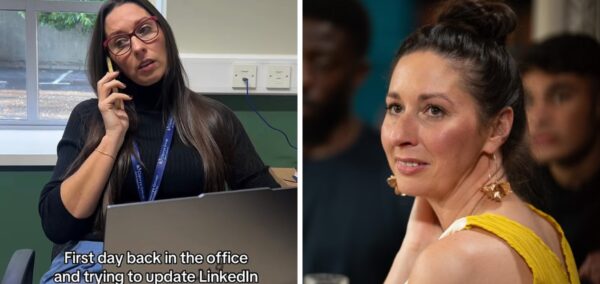
How to survive life at UoN as a student with an invisible disability
Ahh, the joy
Going to university can be an amazing experience, but also challenging and stressful at times. Having a hidden disability on top of moving to a new city or even a new country can also bring even more challenges.
My name is Lauren and I’m a second year music student at the University of Nottingham. I have epilepsy, orthostatic hypotension, scoliosis, and asthma.
Here is my guide to surviving university with any hidden medical conditions with some relatable moments we’ve all had to go through. So, sit back, relax and hopefully my experiences can help any prospective or current university students.

It’s ok to ask for help if you need it!
Most Read
It’s an age-old story for people with invisible disabilities: if someone asks if we’re ok and need any help we usually reply with “I’m fine”. But there are times we need to push our resilient attitudes aside and sometimes ask for help and support. This is when the university’s Disability Support Services come in. If you are due to start university or have just started, my best piece of advice is to contact the Disability Support Services. The support lasts for your entire degree and it’s so helpful as you get a designated advisor who supports you with any difficulties you experience before starting and whilst at uni. The ways they can support you is through help with specific types of accommodation and any adaptations that you may require due to certain conditions. Another way is they can help you in getting a support plan for your course. This is a great idea and I would recommend anyone who is eligible to get one as this plan allows you to get extensions for your coursework, alternative exam arrangements such as having your exam in a smaller room and access to inclusive sport, to name a few.

DSA (Disabled Students’ Allowance)
My second tip is to apply for the Disabled Students’ Allowance if you are eligible. The DSA is support from the government via student finance. DSA is to support students with additional costs you may have due to mental health issues, long-term conditions, or any other disability. A great thing about this is you don’t have to pay anything back. The support you get from DSA can vary from person to person, but from when I applied for DSA I’ve been eligible for ergonomic equipment such as a specialist chair, desk, laptop stand and lightweight laptop bag. You can also purchase a lightweight laptop at a discounted rate with specialist software such as Glean, Read and Write and Grammarly, which I highly recommend using if you’re eligible as Glean is brilliant for recording lecture notes. Finally, you may also be eligible for a printer and ink allowance as well as other support, depending on your condition(s). With this software and support it has definitely improved my learning style and approach to studying so I would certainly recommend applying for it. It’s a lengthy application form, but so worth it in the end!

‘But you don’t look like you have a disability’ or ‘You’re such an inspiration’!
Oh, the dreaded comments that all of us with any medical conditions have had to awkwardly listen to at some point. If I had a pound for the amount of times I have had to explain my conditions to combat stereotypes, especially with my epilepsy I could probably be pretty rich at this point. But as I’ve got older telling people about my conditions, I’ve realised it’s a great opportunity to teach people about my experiences. By having the conditions, I’ve always learned to adapt and power through and I’m sure others can relate to this, showing how resilient we are. Getting the opportunity to share my experiences has been really rewarding, and I can hopefully squash any stereotypes the person may have about the conditions as well.
Have regular breaks, it’s ok to say no
Going to university can also bring in the pressures of going out and not drinking and if not doing these activities can really bring in FOMO. Especially when some friends, course mates and other students not fully understanding the fluctuating nature of your condition and why you don’t want to go out. But it’s ok to say no, especially if some of these activities can worsen your conditions. Remember to take regular breaks and look after your health and well-being, such as having movie and game nights with your friends!

Be open to your friends about your conditions
It can be a bit weird meeting new friends and immediately telling them about your conditions. But you never know, once you open up about your conditions you may learn they have a similar experience as you and can meet like-minded people. As I have found nothing is stronger than the bond you make with a friend who has a similar condition to you and can relate to going to never-ending hospital appointments and the many tests you’ve had. Telling my wonderful group of friends about my conditions has made me a lot closer with all of them and I know they are always looking out for me and when we enter situations that might be too much for me, they know exactly how to help me and make sure I’m ok.

Related articles recommended by this author:
• Bored of the library? Here’s how my week studying at independent cafes in Notts went
• Hallward Library versus George Green: Where should you study?
• Mega Munch to society boys: These six things guaranteed to happen on every Notts night out


















